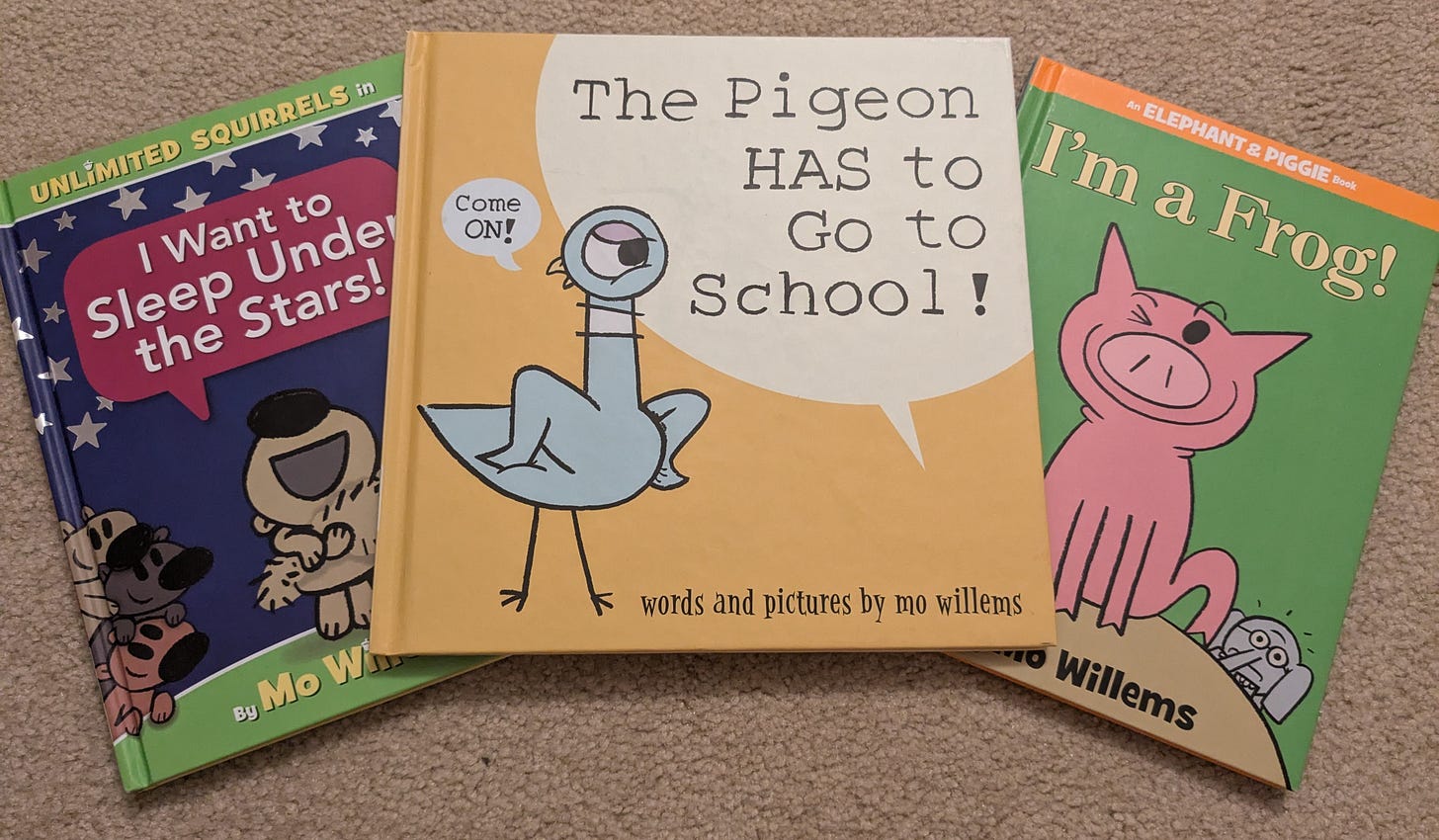Last summer, I spent one month highlighting four of my favorite children’s books with theological messages. Other children’s books have made their way into other posts. This makes sense; I was an elementary school teacher in my first career, and I still appreciate the succinctness of children’s and young adult books. The full list of children’s books I’ve referenced thus far in this blog is at the end of this post if you’d like to take a look.
This summer, as I ease my way back into weekly posting again, instead of books, I’m going to focus on four of my favorite children’s authors. This first author and illustrator I was aware of, but really came to my attention in March 2020. That date is no coincidence; it was precisely because of COVID that he moved on my radar. You see, when the COVID pandemic first started, he immediately started posting videos for children called “Lunch Doodles with Mo Willems!” They were quite possibly the first YouTube videos I ever watched with my children, who were then in kindergarten and first grade, and we watched them, and doodled ourselves, each day he posted.
It’s hard to say what Mo Willems is best known for, whether it’s his series of Pigeon books (“Don’t Let the Pigeon Drive the Bus!” won the Caldecott Award, an annual award to the best picture book published in the U.S.), the Elephant and Piggie books, or the “Knuffle Bunny” books, two of which won the Caldecott and are quite popular among kindergarteners, who can relate to losing a beloved stuffed animal. Last fall, I referenced a book from his Unlimited Squirrels series in my post on Maslow’s Hierarchy of Needs, the need for esteem and respect.
I appreciate Mo Willems for two main things. One is his ability to take big ideas and communicate them simply. Two is something I heard him explain on one of those Lunch Doodles videos. He talked about why he keeps his illustrations relatively plain and unadorned. Children already have fantastic imaginations and their minds can fill in the details. When they are not given all that excess input, then they can create it for themselves. Therefore, especially in the Pigeon and the Elephant and Piggie books, the background is just a solid color. The simplicity keeps the focus on the character and their dilemma rather than detract from it.
Here’s the other thing: adults can be wildly imaginative, too. Our imaginations do not shrink over time; we just use them less. Any muscle that is not exercised will gradually atrophy, including our creative ones. So, the next time you need a cute picture book to read, or to feel better about the world, go check out the Mo Willems’ books at your library. They’re quick and easy to read, while also rather thought-provoking for adults. I recommend the Pigeon if you need some perspective on working out your problems.

Here are the children’s books I have referenced thus far in this blog with the link to their corresponding post:
“God’s Holy Darkness” by Beckah Selnick and Sharei Green
“Eek! Said Amy” by L.J. Zimmerman
“You Are Special” by Max Lucado
“Who Counts? 100 Sheep, 10 Coins, and 2 Sons” by Amy-Jill Levine and Sandy Eisenberg Sasso
“The Invisible String” by Patrice Karst
“Room on the Broom” by Julia Donaldson
“I Want to Sleep Under the Stars!” by Mo Willems



